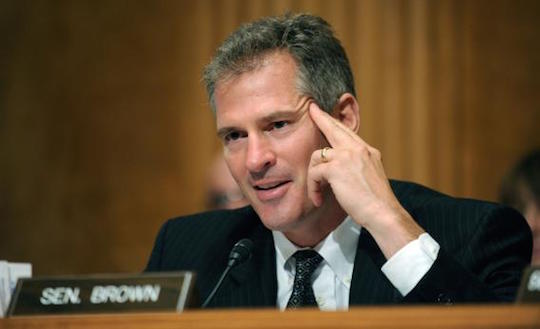Secretary of the Interior Ryan Zinke gave one heck of a speech to the National Petroleum Council yesterday, telling the industry group that he planned to move the Bureau of Land Management out of Washington and into an unspecified western state. He also said that one third of the employees in the Department of the Interior were not loyal to him or President Trump. That made headlines, but my favorite part of the story is the secretary’s nautical metaphor. Zinke told the assembled oil company reps that he knew when he took over Interior, “I got 30 percent of the crew that’s not loyal to the flag.”
That’s the old Zinke charm, right there: by analogizing everything to the Navy, he makes his career as a SEAL the prerequisite for whatever job he has been called on to do. Of course, one side effect of this metaphor is that it conflates loyalty to the United States with loyalty to Trump. If Zinke is correct, and a third of his department is resisting his agenda from within, maybe it’s because they are more loyal to the Department of the Interior than to this particular administration. The new secretary’s plan is to radically restructure the department, after all. Perhaps they’re not on board with his changes because they have a bunch of experience, whereas Zinke has seen fit to re-envision a whole department in the executive branch despite never having done anything like this before. That’s the Trump administration’s promise, though: they’re going to completely change Washing by drawing on the wisdom they have gained by never working in it.
Anyway, best of luck to Commander Zinke in rooting out the traitors in his midst. I also wish him luck in his ongoing plan to protect public lands, a commitment that defined his politics right up until he stopped needing to win elections. On a completely unrelated note, here’s the other fun quote from the AP’s report:
Zinke also offered a quirky defense of hydraulic fracturing, a drilling technique also known as fracking that has led to a years-long energy boom in the U.S., with sharply increased production of oil and natural gas.
“Fracking is proof that God’s got a good sense of humor and he loves us,” Zinke said without explanation.





